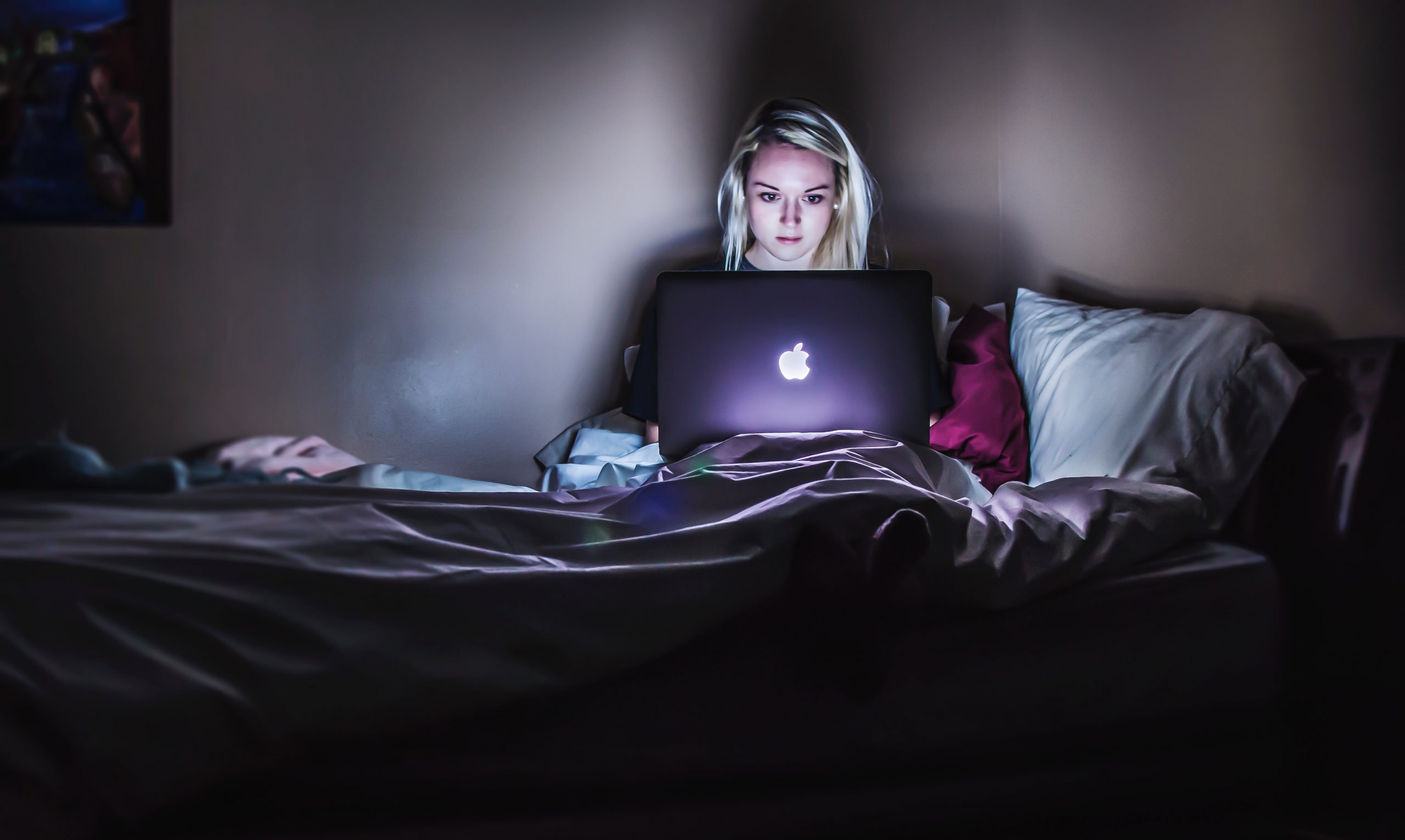It is no surprise to all of us that electronic devices play a fundamental role in our daily lives and even more so with the pandemic. We use electronics so much in our day-to-day including, but not limited to, communicating with friends and families, online gaming, virtual school, and work meetings. Nonetheless, technology is here to stay. However, one of the most concerning parts of electronic use is how it interferes with our sleep hygiene. Research shows that 90% of Americans report using a computer or smartphone device in their bedroom within an hour of trying to fall asleep.
Blue Light
Not only can electronics impede the amount of sleep we get per night, but these glowing screens also emit blue light. “Blue light is a short wavelength type of light that promotes alertness and performance” as noted by the Sleep Foundation. This blue light can also suppress production of melatonin, which is responsible for feelings of sleepiness. Being exposed to blue light during the day can provide energy, improvements in mood, and concentration. Yet the opposite effects occur when we are exposed to blue light in the evening and nighttime as our circadian rhythm (sleep-wake cycle) is disrupted causing us to feel less sleepy than normal at bedtime.
Sources of Blue Light
- Fluorescent lights
- LED lights
- Smartphones
- Televisions
- Computer Screens
- Tablets
- E-Readers
- Video game consoles
What is Sleep Hygiene
Sleep hygiene focuses on healthy sleeping habits during the day and when you go to bed to promote consistent and uninterrupted sleep. What you do during the day, not just an hour before bedtime, affects how well you sleep. Improving your sleep hygiene, can also positively impact your physical and mental health, productivity, and daily habits.
Creating Healthy Sleep Hygiene
- Minimize daytime naps
- Cut down on caffeine during the afternoon and evening
- Wake up at the same time no matter when you fall asleep
- Set up your bedroom for sleep (comfortable pillows/ mattress, cool temperatures, block out light, noise machine, essential oil diffuser)
- Be careful what you watch on TV and how that affects your stress level before your fall asleep
- Unplug electronics at least 60 minutes before bedtime
- Wind down and do something relaxing an hour before sleep
- Only use your bed for sleep, if you aren’t asleep within 30 min, get out of bed and do something relaxing
- If you want to change your sleep times, make gradual adjustments by an hour or two as to not disrupt your schedule
Sleep hygiene is not the same for everyone so make gradual adjustments to see what works best for you. Improving sleep hygiene will not fix all sleep disturbances. If you are someone who experiences sleep disorders, such as insomnia or sleep apnea, better sleep hygiene in conjunction with other treatments are likely necessary so talk to your doctor to see what the recommended course of treatment is.












